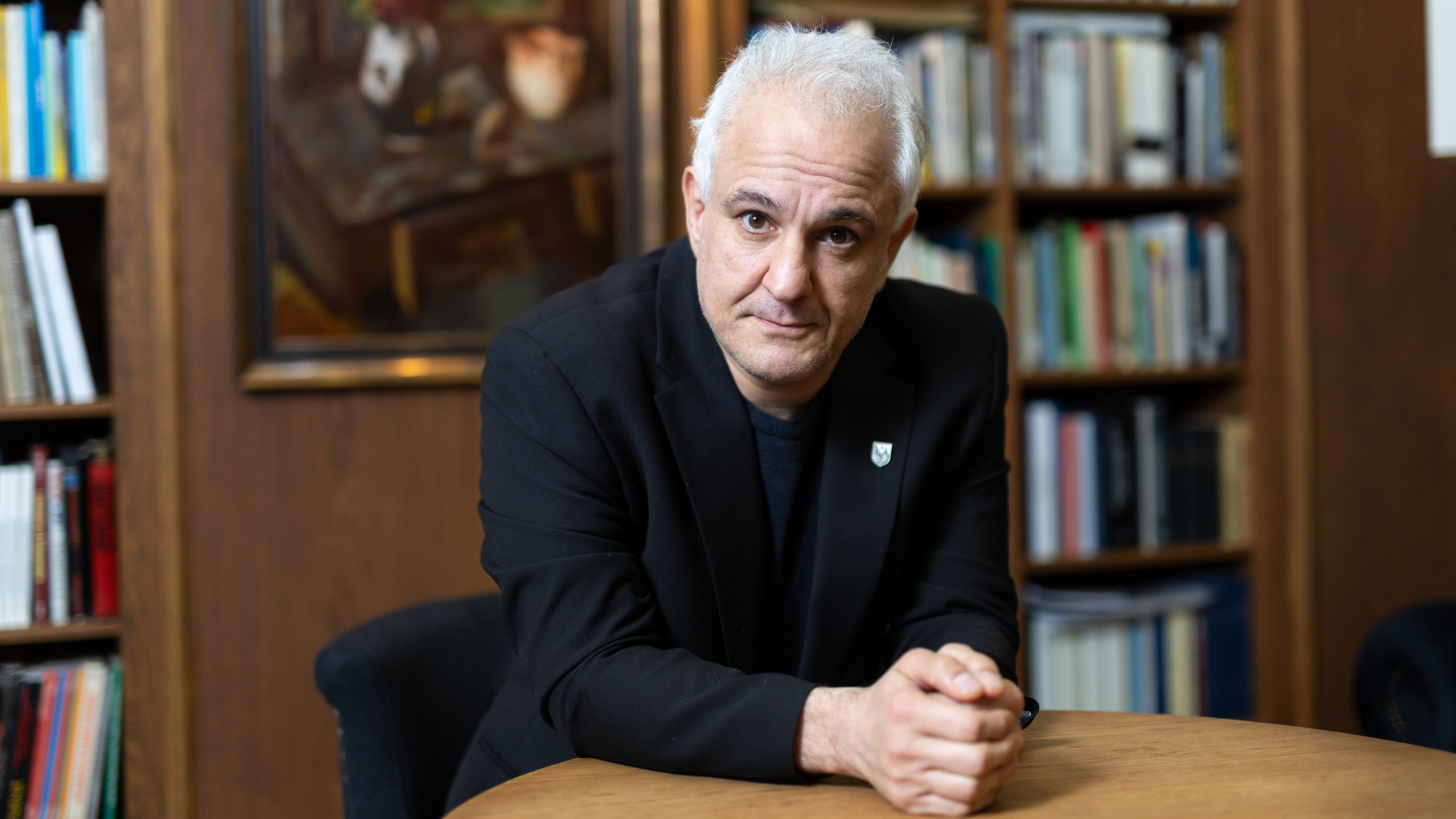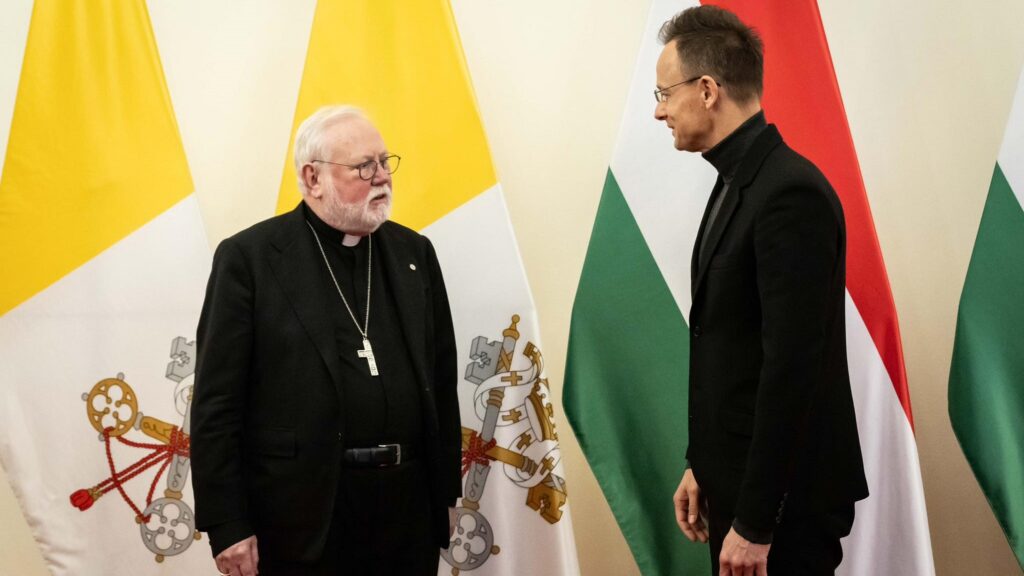Peter Boghossian is a philosopher, Founding Faculty Advisor at the University of Austin, and the Executive Director of National Progress Alliance. As a visiting researcher at the Danube Institute, he brought his Spectrum Street Epistemology programme to Budapest, which has gained success at universities across the Anglosphere and in American public discourse.
***
‘Islamic Migration, God, & Trump’—the eye-catching title of your programme.
We want to have conversations about things nobody else is talking about. We want to see what it would take for someone to change his mind. For example, if they think that Trump is great, what would it take to change their minds about that?
The participants discussed these notions, and I expected to have some insight into what God might think about Islamic migration or Donald Trump.
No, these are separate issues.
Still, what could God think of Trump?
Well, it is a nonsense question, because I don’t think there is a God. It is like I would be saying, what would a unicorn think about Trump? There are no unicorns either.
Then what would God say if He existed?
If there is a God, there would be no way to know what God thinks.
What are your theoretical reasons for being an atheist?
I don’t think there is enough evidence to hold a belief in a God or gods. But if I had the evidence, I would believe. In fact, I think there is literally zero evidence for that.
Is there enough evidence for you to be 100 per cent sure that God doesn’t exist?
There are some people like Victor Stenger who think that there is evidence for the non-existence of God, but the default is that when you make a claim that God exists, you then have to give evidence for that claim. If I say that I know a guy from Pluto, I would have to give evidence for the fact that he’s from Pluto. I mean, I’m free to say that in an open society, but I have to give evidence for those claims.
How strong are the foundations of atheism?
Atheism isn’t a foundational belief. It’s a stance about the existence of a God or gods. Anytime you make a claim about something, the burden is on you to provide evidence for that claim. There is a saying: the more extraordinary the claim, the more extraordinary the evidence. So if I say to you, I drank two cold brew lattes at Starbucks this morning, there is no reason for me to lie to you. It’s an ordinary claim. I don’t need to give any extraordinary evidence. But if I say that I saw a bunch of moose walking down the street in Budapest, that’s a pretty extraordinary claim. Making the claims of religious beliefs, those are extraordinary claims. If I told you I went swimming in the Danube, which is a probably stupid idea since the water is polluted and very cold, but that’s not an extraordinary claim. But if I told you I walked across the Danube this morning unaided by technology, that’s an extraordinary claim. You would need evidence for that claim.
Have you ever put all the arguments of atheism under the microscope of the very standards of critical thinking and scientific scepticism by which you check the claims of religions?
Good, now you are talking my language…
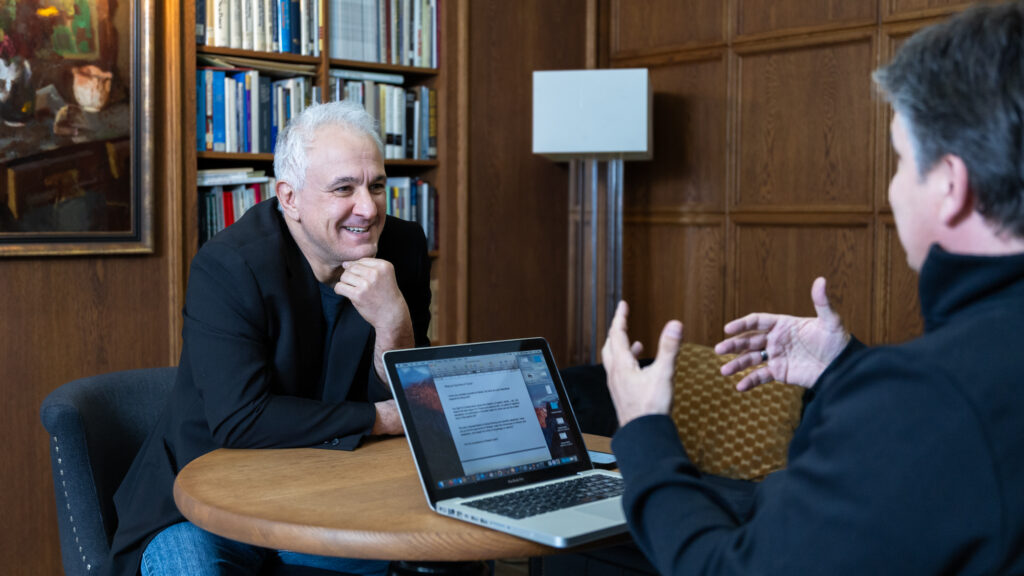
Because I think that the capacity of human knowledge about eternity is very limited.
This is the way to look at the question: how much evidence do I need for the fact that somebody walked on water? I would say, an awful lot. I would need far more evidence for this claim than for the fact that you drank a cup of coffee at Starbucks this morning. Now there are two things going on. There is metaphysics, the extraordinary claims, and then there are moral claims. I agree with many of the moral claims of Christianity in the New Testament. I think that those in general make society more prosperous, more affluent, more kind, and more coherent. But I don’t buy any of the metaphysical claims. I think they’re total nonsense.
‘We want to have conversations about things nobody else is talking about’
Have you thoroughly examined the basic sayings and deeds of Jesus in the New Testament to conclude that they are impossible?
For years, I was involved in the New Atheist movement. I had Christian apologists come to my class to speak. I studied their arguments, I have published extensively on their arguments, so I’m very well positioned to say that I have not seen any arguments that would sufficiently sway every rational person to believe these claims are true.
If you die, like all of us will, don’t you have a fear inside your heart that your knowledge might have deceived you? That some minutes after your death, the risen Jesus Christ will meet you and say: your flesh is dead now, but I told you there was an eternity and you would live. So there comes the moment of truth when you face it: you spent your life going in the wrong direction. Don’t you give a 1 per cent chance that this scene can happen?
No, zero. You could say the same thing about every religion. You could say that I should feel the same about Islam or the gods of the Greek pantheon.
So, you don’t have any fear.
No. I don’t want to live forever.
I understand, but what if it’s not your decision? Because Christianity teaches that since we are called to life, we will live forever, the spirit, the soul and the resurrected body as well.
But I don’t buy into that belief system. The same way as with any other religion.
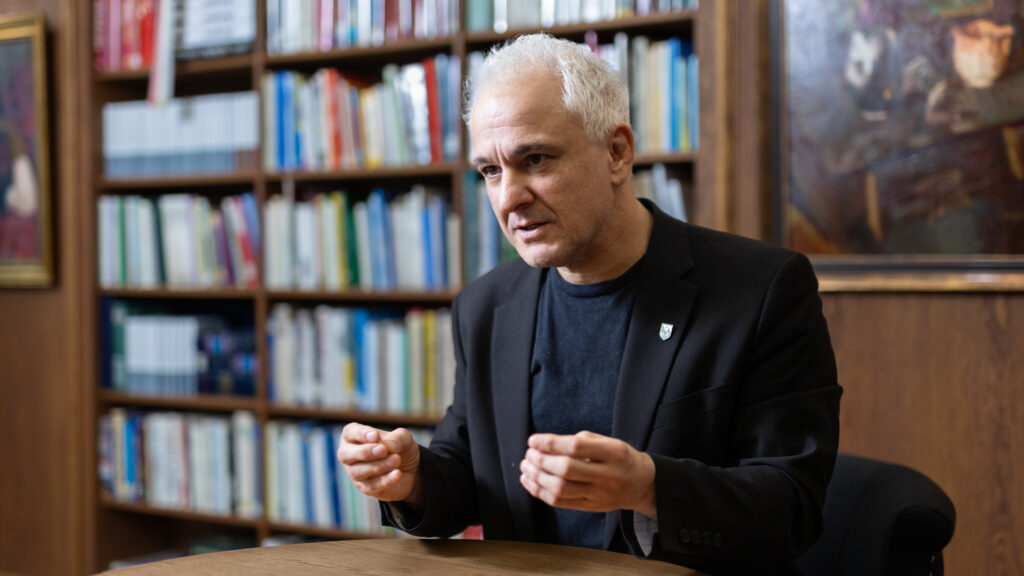
So, you say that from the moment we die, there will be nothing, like when somebody just switches off the light.
Yes. It will be in the same way that it was before you and I were born.
If you fight for important values like freedom of speech, family, and anti-woke beliefs, what is the face value of these principles if there is no eternal truth, no objective justice, no continuation of life after death for which we can be a better man in this earthly life?
Great question. I think that position is exactly the opposite of what it should be. I have often heard that if you don’t exist somewhere eternally, then life is meaningless. But I think the opposite is true. It is only because there is no eternity and greater purpose that every single thing you do in your life is drenched with meaning and importance. Now is the most important moment of your life. That’s also the reason why it’s incredibly important to always be moral, not because there is some kind of ‘celestial dictator’, as Christopher Hitchens said, or because you go to hell or go to heaven. You shouldn’t be motivated to do good because you think you will receive some reward. Our lives have meaning and purpose exactly because there is no eternity.
‘It is only because there is no eternity and greater purpose that every single thing you do in your life is drenched with meaning and importance’
Have you ever changed your strong belief on anything?
On many things. I have changed some of my political beliefs: I always had certain beliefs about neoliberalism. I have changed my beliefs about third-trimester abortions. I have changed my beliefs about certain technical, non-moral issues and philosophy, and I have changed my mind about certain things in parenting.
So, if you saw absolute evidence of God, you would change your mind.
100 per cent. In a second.
In your above-mentioned project called Spectrum Street Epistemology, you examine strongly held beliefs like religious or social ones. In your experience, how deeply are these beliefs founded?
Most of the people will hold their beliefs because they think it’s the belief that they should hold. Good people hold this belief, I hold this belief, so I am a good person. So, they choose a belief because they think it makes them good. The philosopher Dan Dennett calls this ‘belief in belief’.
This is a human thing, right?
Yes. That’s so interesting to me. Look at the transgender issue. On one occasion during Spectrum Street Epistemology, there was a man who held an extreme opinion on trans standards that I just couldn’t understand. He adjusted or calibrated his confidence because his daughter was non-binary. He had an emotional attachment because his daughter said to him something about her gender or sexual identity, and he wanted to validate her, to let her know that he loved her. It wasn’t about evidence, he only told himself it was about evidence.
How often did you encounter this kind of attitude in your many years of experience with this project?
Virtually everybody does it. If I said that the hamburger bun on Wendy’s hamburgers has a longer diameter than the hamburger bun on McDonald’s, people would believe that, no problem. If I brought in 1000 buns from McDonald’s and 1000 buns from Wendy’s, and I showed them that the McDonald’s was smaller, they would also take it, no problem. But the moment you start talking about anything that’s moral, that’s different, that changes everything. Because people pick their moral beliefs first, and then they look for evidence. Good people believe in God, I’m a good person, so I believe in God. Now let’s look for evidence for the existence of God. And it’s the same thing with everything. Good people hate Trump, I’m a good person, so I hate Trump. Good people love Trump, I’m a good person, so I love Trump.
Have you ever met a Russian and a Ukrainian who participated in your programme together to confront their ideas on war and peace?
No. This is one of the reasons I’m coming back to Budapest in June. We have a fantastic idea at the Danube Institute: we would like to get young Fidesz members and young socialists to participate in Spectrum Street Epistemology. We would start asking them questions, like about surrogacy. Should surrogacy be legal? Is surrogacy immoral? I would like to have that conversation.
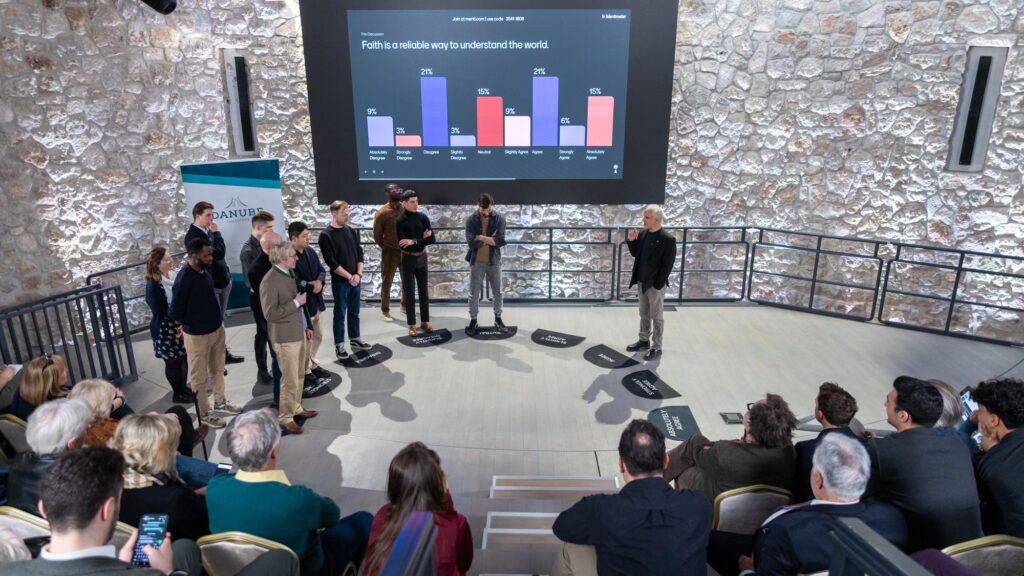
And would you expect them to be honest, or to follow the party line?
I think they would be honest about belief in the party line. I think that’s why they are members of the particular party, because they believe it’s true. If we can get them to participate with other people, people you disagree with, people you agree with.
You are of Armenian descent, you should have some family knowledge of Soviet–Russian mentality, methods and goals. Do you have sympathy or antipathy for them?
I am deeply sympathetic to the Ukrainians. I think that there is overwhelming evidence at this point that Putin’s troops have committed atrocities in Ukraine, they have stolen Ukrainian children, they have tortured men, raped Ukrainian women. I want the Ukrainians to throw out the invaders.
And any sympathy for Russian arguments?
I have no sympathy for Putin whatsoever. I have profound sympathy for the Russian men on the front lines who don’t want to be there. They are picked up from poor, working-class regions; these are not the children of oligarchs or the people of the upper middle class. They are in a brutal army.
‘People pick their moral beliefs first, and then they look for evidence’
What about the new approach of the US and the European attitude?
American attitude has changed towards Europe. I think that Americans have been worn down by the loss in Iraq, worn down by the loss in Afghanistan, they are sick of being looked down on by the Europeans, and they are sick of paying for Europe’s defence. Trump is saying that Europe should be responsible for its own defence. You are going to see a very different relationship between the United States and Europe. If I talk to European conservatives, they are baffled and confused about Trump’s Ukraine stance. And I’m concerned about NATO. I’m a big believer in NATO. I’m a big believer that we must stop Russian aggression.
There is a new geopolitical reality unfolding before our eyes. Is the position or visibility of Hungary getting stronger or weaker?
Far stronger. Because of the relationship between Donald Trump and Viktor Orbán, there is no question about it.
Is it only because of the Trump factor, or are there other circumstances for that?
In a wider context, Europe is not doing well economically right now. I think that Europe is a sinking ship, and I’m concerned. And I think you should be concerned too. I think Europe is in serious trouble.
And if Europe rearms, can there be hope or not?
I don’t think Europe has the stomach or the will for another war. I don’t think Europe’s population would tolerate it. I don’t think Europe is capable of rearming because that would mean you would have to cut back your welfare state or increase taxes. European countries already run massive deficits. So where are you going to get the money? I do not think Europeans are going to make the cuts necessary to rearm.
Poland now has conscription, Macron is talking about arming Europe, but there’s no will there. What percentage of Hungarians do you think are going to fight if Russia invades a NATO state? People here don’t even know how to fire a gun. Well, lucky for you, you are still in NATO, so the Russians are probably not going to come West, but they may go to Moldova, and they may try to take over there. But what are you going to do? You probably have to beg the Americans to help defend you. I don’t think you realize how dire the situation is if the Americans leave.
I suppose the moment of truth has already arrived, and Macron, Merz, Starmer and the other leaders know it. And hopefully they will act on it.
The British can’t even stop illegal migrants. How are they going to act on it? There’s no appetite. There’s no political will. There’s no concept of national sovereignty. The only thing you can hope for is that Putin will summon his troops home to a failing economy, but he may go to Moldova. Because if he decides to turn 750,000 men to the West, the Article Five of NATO, which means an attack on one is an attack on all, will be activated, and then you’ve got serious problems. And you will see what happens if China starts a blockade around Taiwan, 95 percent of the world’s semiconductors are from there.
That would hurt the US too.
Well, we are willing to take that loss. But I don’t think that the European mind can comprehend this, because you have lived under the umbrella of American protection for so long. Trump is completely serious. You need to wake up and make some difficult decisions. The only hope you have is getting geopolitically lucky. The world is in a very precarious situation.
You need to do some honest, sincere thinking about what you are going to do when Trump pulls the plug on the military spending and their troops in Europe.
Related articles:

